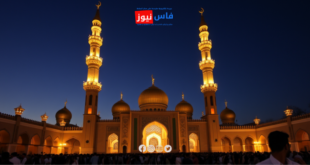Javier Diaz Cassou, Senior Principal Economist at the World Bank (WB) in Morocco, indicated on Wednesday in Rabat that Morocco’s economic growth is expected to accelerate to reach 3.6% in 2025 and 3.5% in 2026.
Speaking at a roundtable discussion on the conclusions of the WB’s new report on monitoring the economic situation in Morocco, titled “Prioritizing Reforms to Improve the Business Climate,” Diaz Cassou emphasized that these are relatively robust growth levels, but remain in line with those observed before the pandemic.
He noted that agricultural GDP growth is also expected to be relatively strong in 2025, due to much more favorable climatic conditions than the previous year, noting that agricultural GDP is expected to converge towards growth of around 2.6% in the medium term.
On the other hand, he pointed out that non-agricultural GDP growth is expected to experience a slight deceleration in 2025, mainly explained by a base effect: sectors that showed strong growth in 2024 will continue to grow robustly, but at a slightly lower pace than the previous year.
“Regarding inflation, it is expected to remain controlled despite some trends observed during Ramadan, a period when price pressures are traditionally seen. However, inflation expectations recorded by Bank Al-Maghrib surveys, as well as the evolution of the core inflation rate, confirm this control,” said Diaz Cassou.
The current account deficit is expected to widen slightly, while remaining well below historical averages, reflecting the recovery of domestic demand in the Moroccan economy, which generally leads to a slight widening of the current account deficit, he estimated.
For its part, the budget deficit is expected to continue its recent trend of gradual reduction towards pre-pandemic levels. This development would also favor a slow decline in public debt, which is expected to settle between 67 and 68% of GDP over the current account projection period.
In addition, Diaz Cassou highlighted the increasingly strengthened role that the public sector plays in the Moroccan economy, in line with the orientations of the new development model.
He noted that there are factors favorable to optimism for the Kingdom of Morocco, particularly the recent rainfall, favoring a more pronounced rebound in agricultural GDP.
However, according to the report, significant socio-economic challenges remain. The recent inflationary shock has impacted household purchasing power, leading to a decline in confidence indicators. Although urban labor markets have improved, with approximately 162,000 jobs created in 2024, job creation remains a major challenge.
Over the past decade, the working-age population has increased by more than 10%, while employment has only increased by 1.5%.
The report shows that with strategic reforms and a strong commitment to modernization, Morocco has considerable potential to improve its business environment, stimulate economic growth, and foster a more inclusive labor market.
from: fesnews
 فاس نيوز ميديا جريدة الكترونية جهوية تعنى بشؤون و أخبار جهة فاس مكناس – متجددة على مدار الساعة
فاس نيوز ميديا جريدة الكترونية جهوية تعنى بشؤون و أخبار جهة فاس مكناس – متجددة على مدار الساعة













